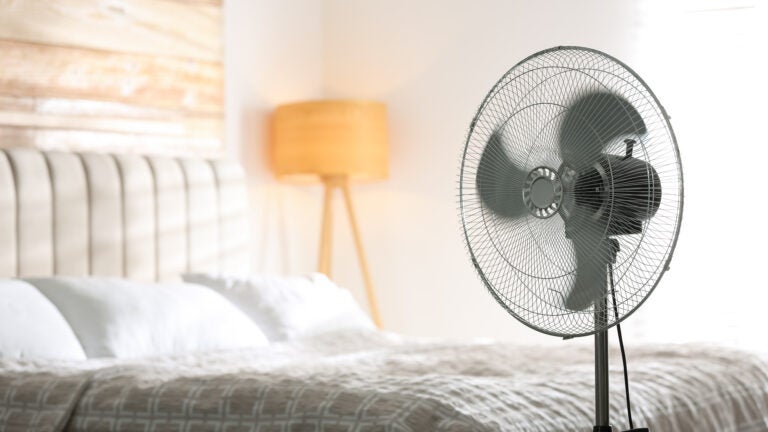Address newsletter
Stay up to date on all the latest news from Boston.com

Managing the temperature of your home is crucial to staying comfortable and healthy, and this week will be the first test in perseverance for renters without AC.
“Temperatures will climb into the upper 80s in the Boston area and remain quite warm through at least Thursday. Some inland areas could top off at 90 on Wednesday and Thursday if we get enough sunshine and a cold front slows down,” the Globe’s Dave Epstein reported Monday.
Carlos Martín, project director of the Remodeling Futures program at the Joint Center for Housing Studies of Harvard University, told Boston.com last year that the two major dilemmas with heating and cooling are that people either aren’t in control of their energy or can’t afford it.
“As we’re approaching summer, there will very likely be extreme heat days,” Martin said. “We’ve had them every summer in this country for the past decade, and they’re increasing because of climate change.”
The EPA estimates that 1,300 people die of extreme heat each year and an additional 600 die due to its “underlying and contributing causes.”
Sarah Redmore, the director of undergraduate interior architecture at Boston Architectural College, told Boston.com last year that there are strategies to adjust to living without heat or air conditioning and that taking seasonal measures can be particularly helpful.
“Little strategies make a big difference,” Redmore said. “It’s about being aware of your environment and where you feel good, understanding the building system, and the physics of heating and cooling.
Redmore also said “psychology of space” — understanding how surroundings affect people physically and emotionally — is an important consideration. Knowing how you prefer your space to feel is essential in creating a comfortable environment and adapting as the seasons change.
For those without air conditioning, Redmore suggested minimizing sunlight. Drapes, blinds, and curtains all serve double duty by keeping heat inside during the winter.
“Before you leave your apartment to go to class or work for the day, open up your drapery and let in some of this natural heat that doesn’t cost anything,” Redmore suggested for the wintertime. “In the summertime, if those windows are where a lot of heat is coming in … close up those draperies.”
Another way to stay cool is cross-ventilation, Redmore said. If you have windows on both sides of your apartment, open them up to allow air to flow throughout the space. If your windows are located on just one side — as is the case in many studios — she suggested opening the windows and placing a fan on the other side of the apartment to circulate air.
Ceiling fans are another double-duty system, and can be used to circulate warm air in the winter, as well as cool air in the summer, Redmore said. In the winter, use your ceiling fan to push hot air from the ceiling down the walls and toward the floor. In the summer, use it to suck warm air up and out instead.
Redmore also suggested opting for lighter-weight bed linens and moisture-wicking sheets in the summer.
Martín said to consider splitting the cost of a window unit air conditioner with your landlord.
He also recommended understanding your ventilation system, which will help you decide whether to open windows or invest in fans or other cooling systems. Redmore said it is crucial to understand the airflow of your space — and not to block it with furniture.
“Truly understanding the placement of your furniture is another part of this,” she said. “Make sure your furniture isn’t against an outside wall … that it’s not covering up your heating or air-conditioning sources … that you’re not covering the air vents or the baseboard heaters or the radiators. That’s huge.”
Stay up to date on all the latest news from Boston.com





Stay up to date with everything Boston. Receive the latest news and breaking updates, straight from our newsroom to your inbox.
Conversation
This discussion has ended. Please join elsewhere on Boston.com